The proposal for Badel Block has been conceived as a porous urban fabric, based on an intergenerational and mixed-use program.
Open Closure: If on one side it performs self-sufficient closure, on the other, its spaces, facilities and connections are also open to serve the city.
Porosity: Besides making the difference between the interior and the exterior, its outer porous membrane allow pedestrians to get throughout the paths to its inner public yard.
Cellular Metabolism: The design responds to the optimal conditions in its immediate environment as well as in relation to itself, so as to reach certain autonomy.
Hub: It becomes a hub of paths that does not only link but also provides, promotes and enhances new activity; while at the same time it is plugged into the urban infrastructure.
Mixed-Use: The poly-functional character of the Block works in a flowing synergy among a wide variety of uses: dwellings, hotel, offices, retail and public facilities and spaces.
Intergeneration: The Block regards the intergenerational relationship, from children up to elderly, as a mean for social cohesion; so its mixed-use gathers all the stages of life.
Economical and Environmental Sustainability: The porous tissue maximizes the façades, to enhance the retail ground floor, as well as to offer optimal conditions for dwellings, by easing ventilation between buildings. Retail, trade and leisure work along with the intergenerational dwellings and spaces, so as to bring activity 24/7.
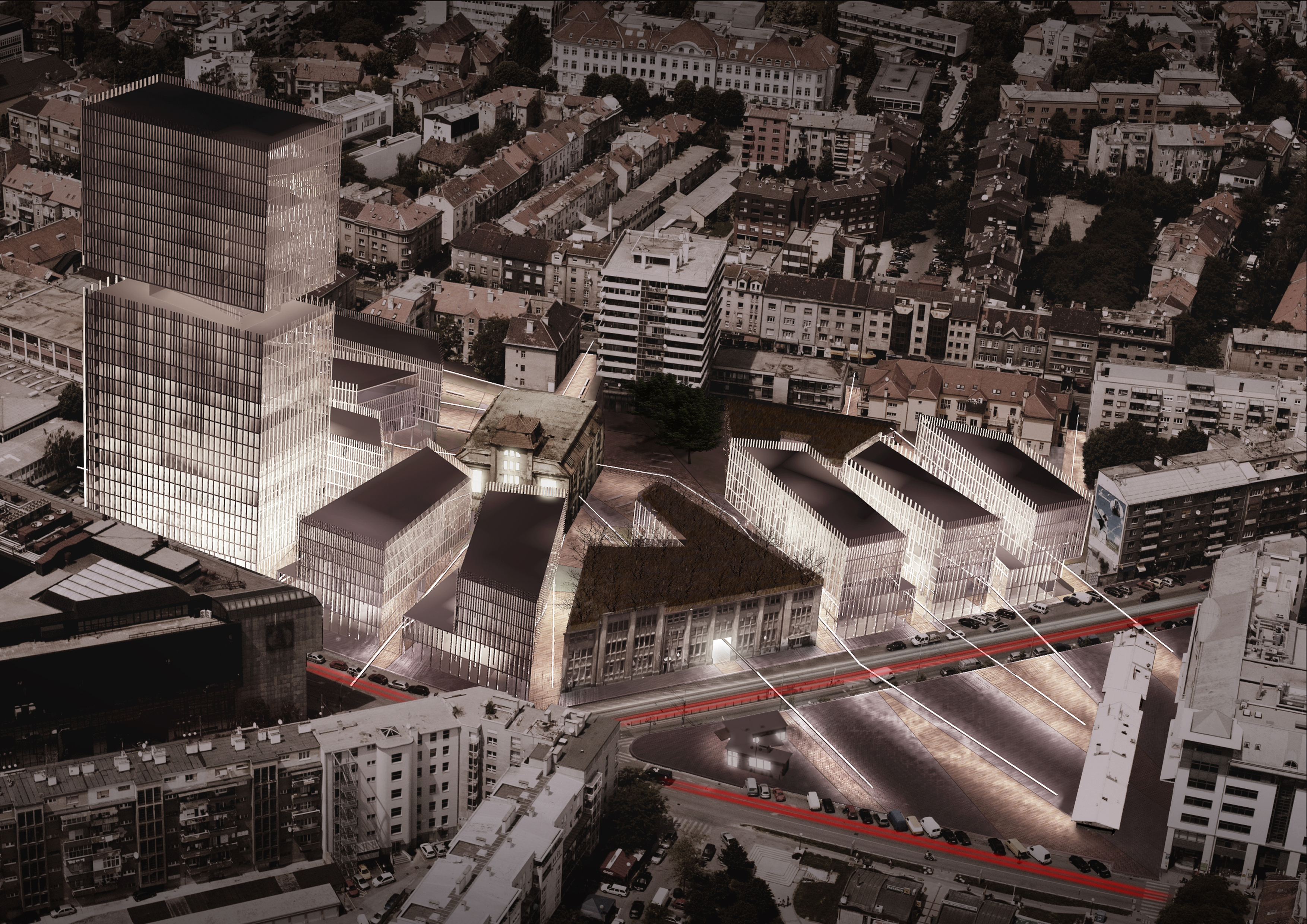
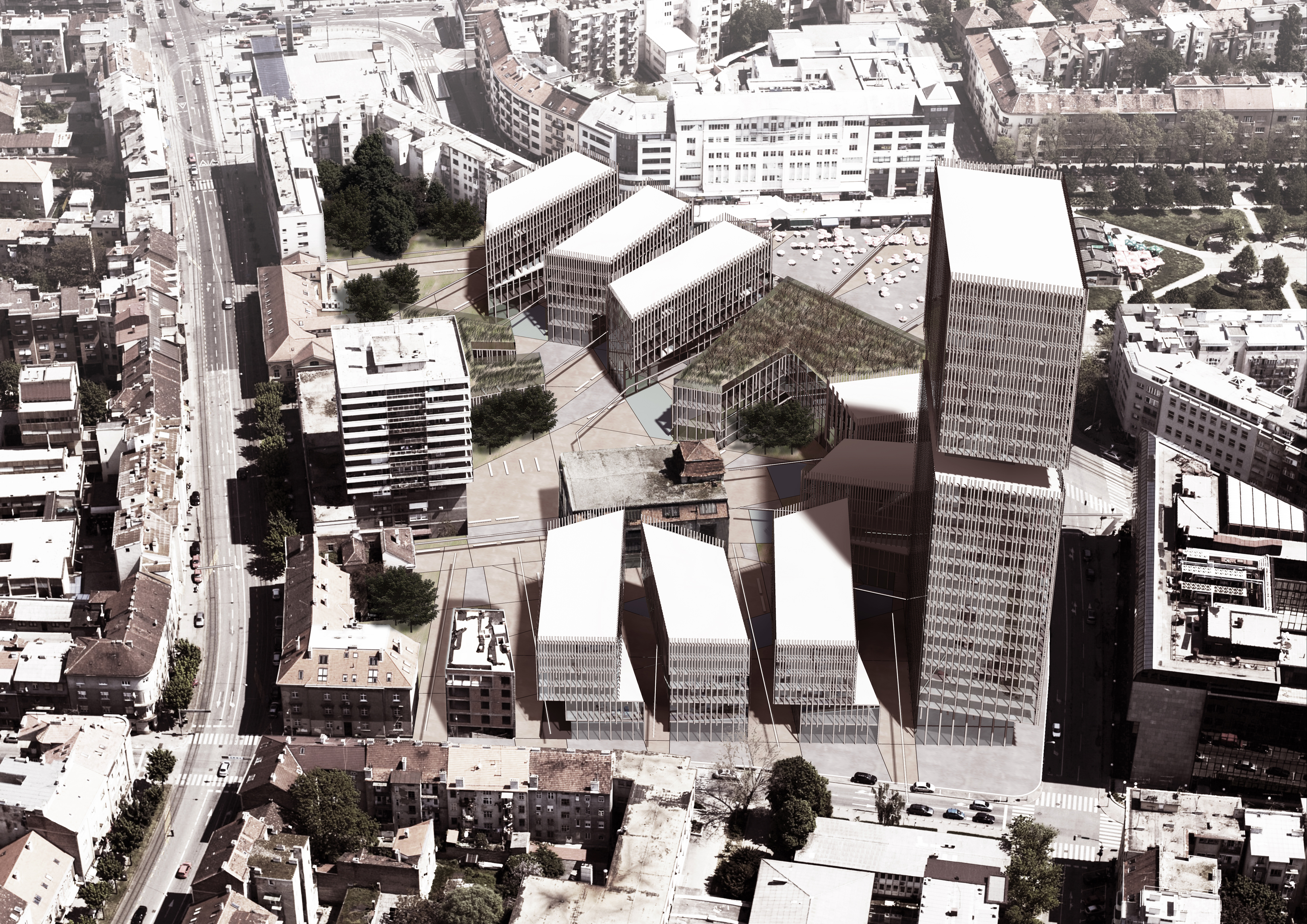
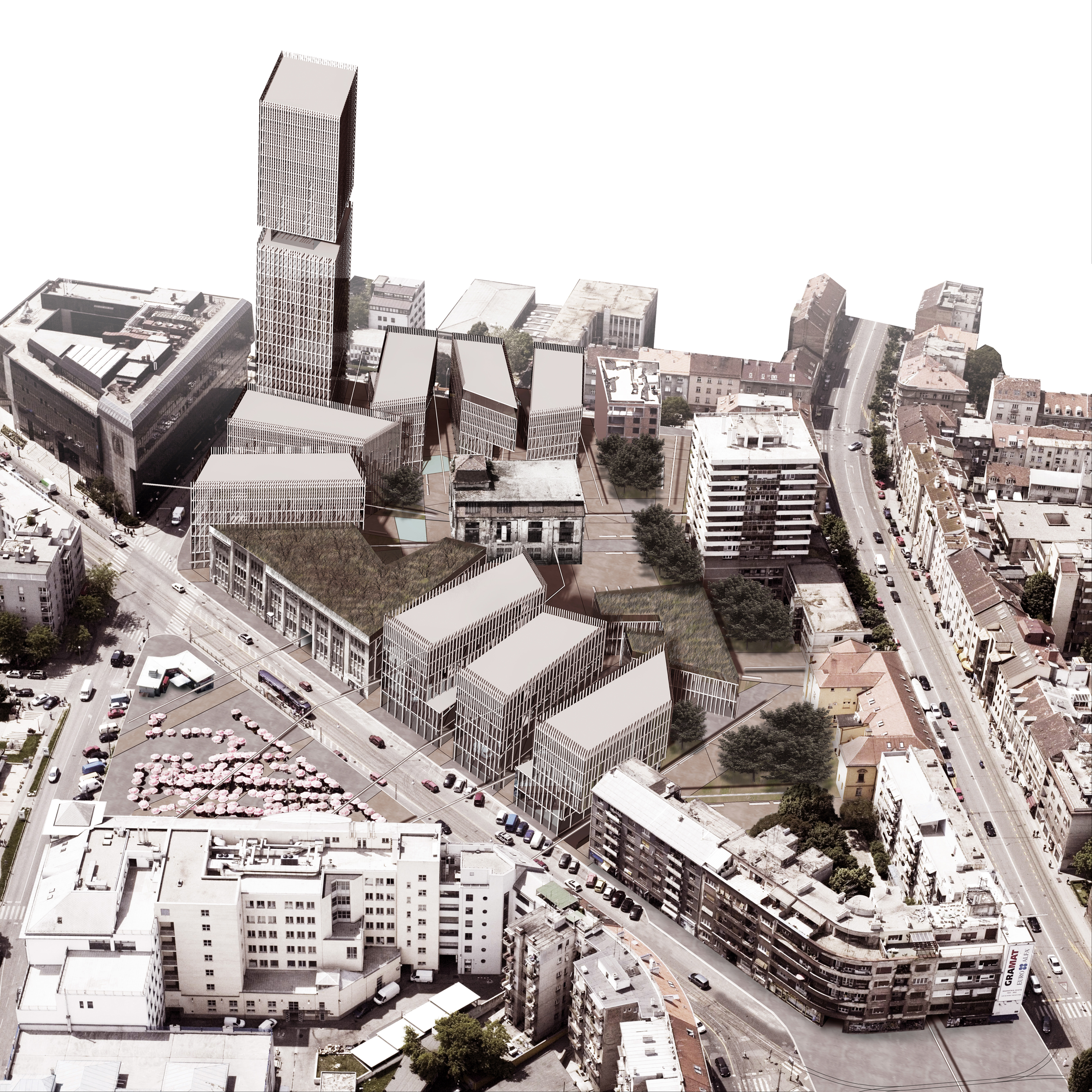
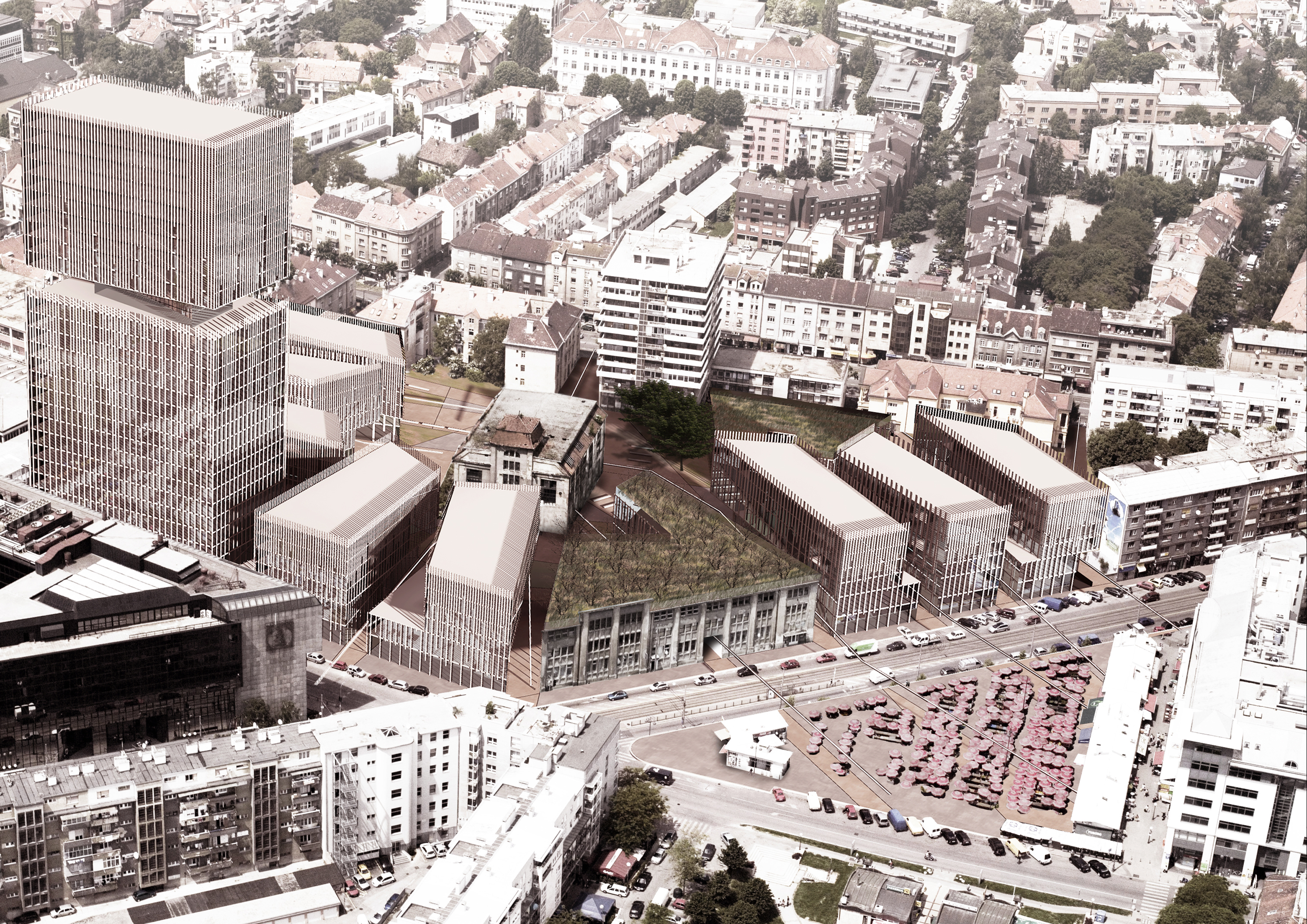
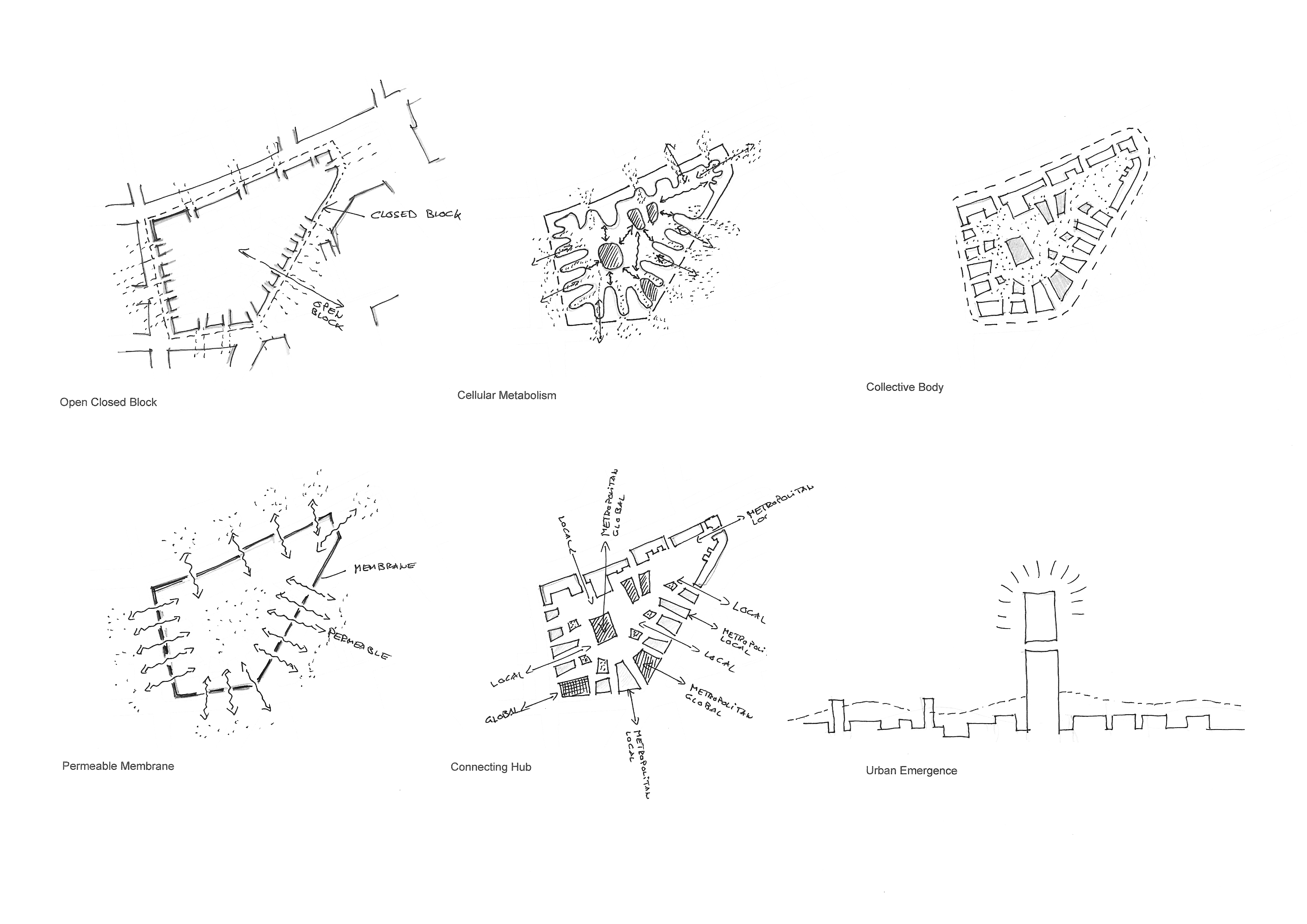
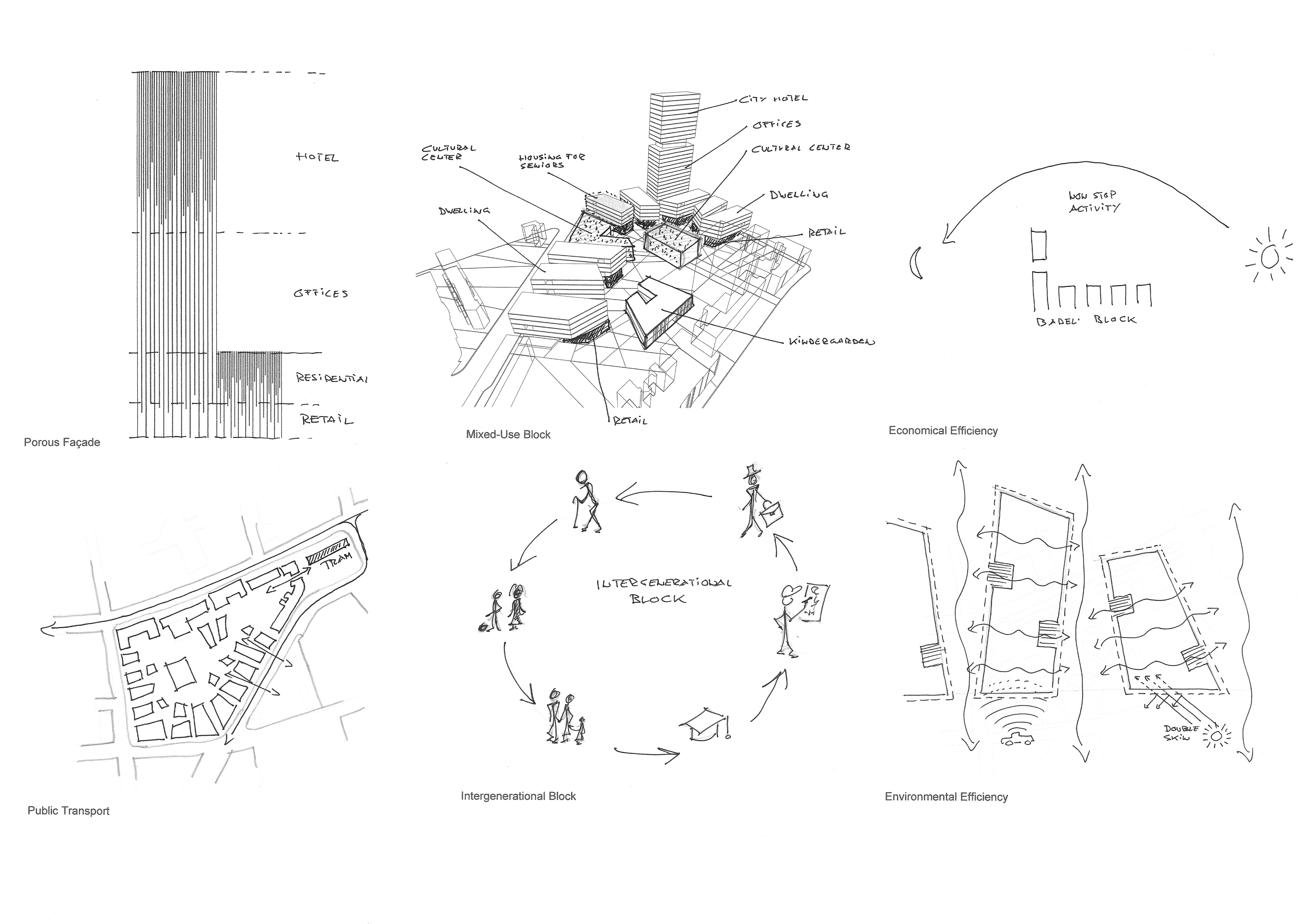
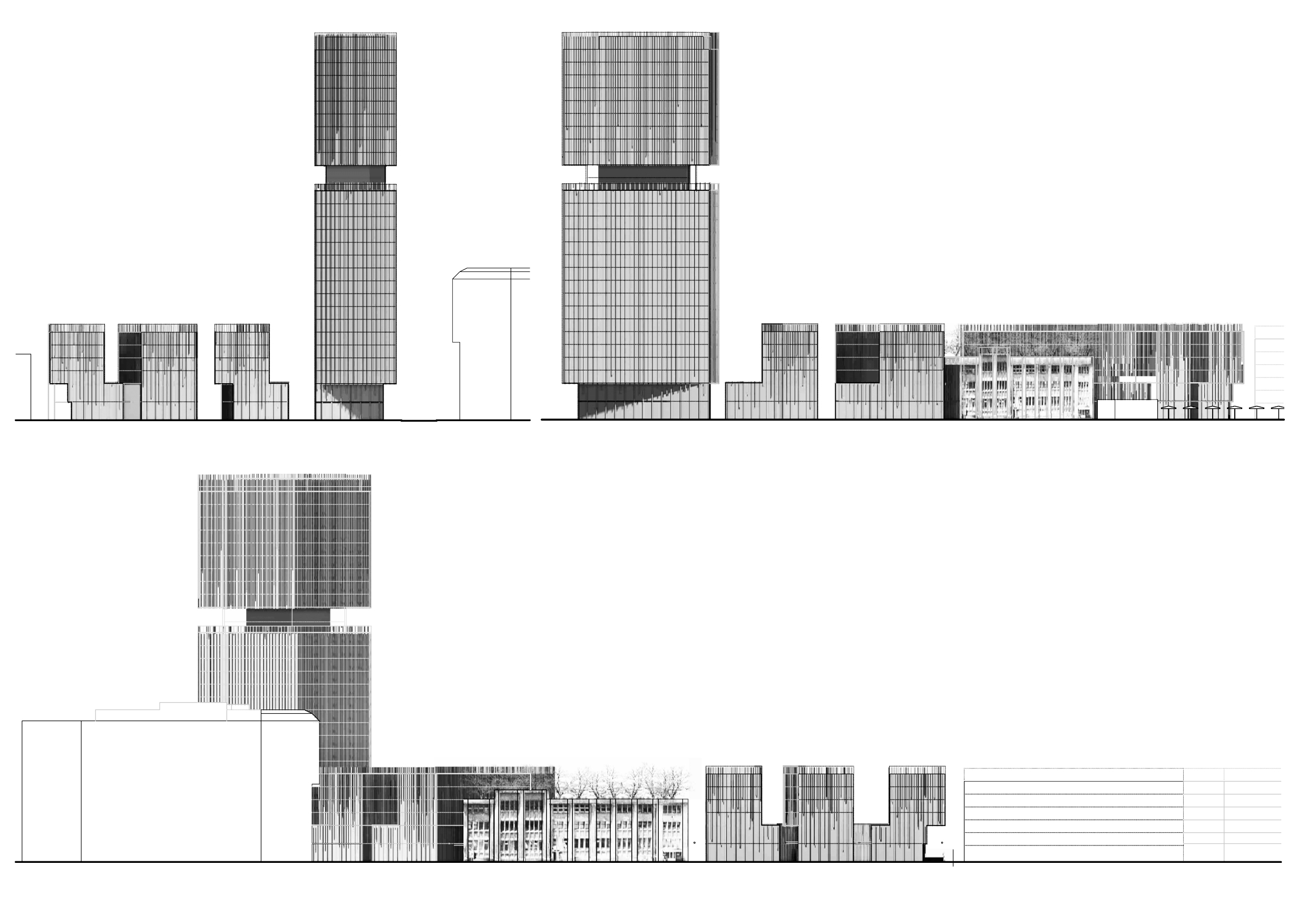
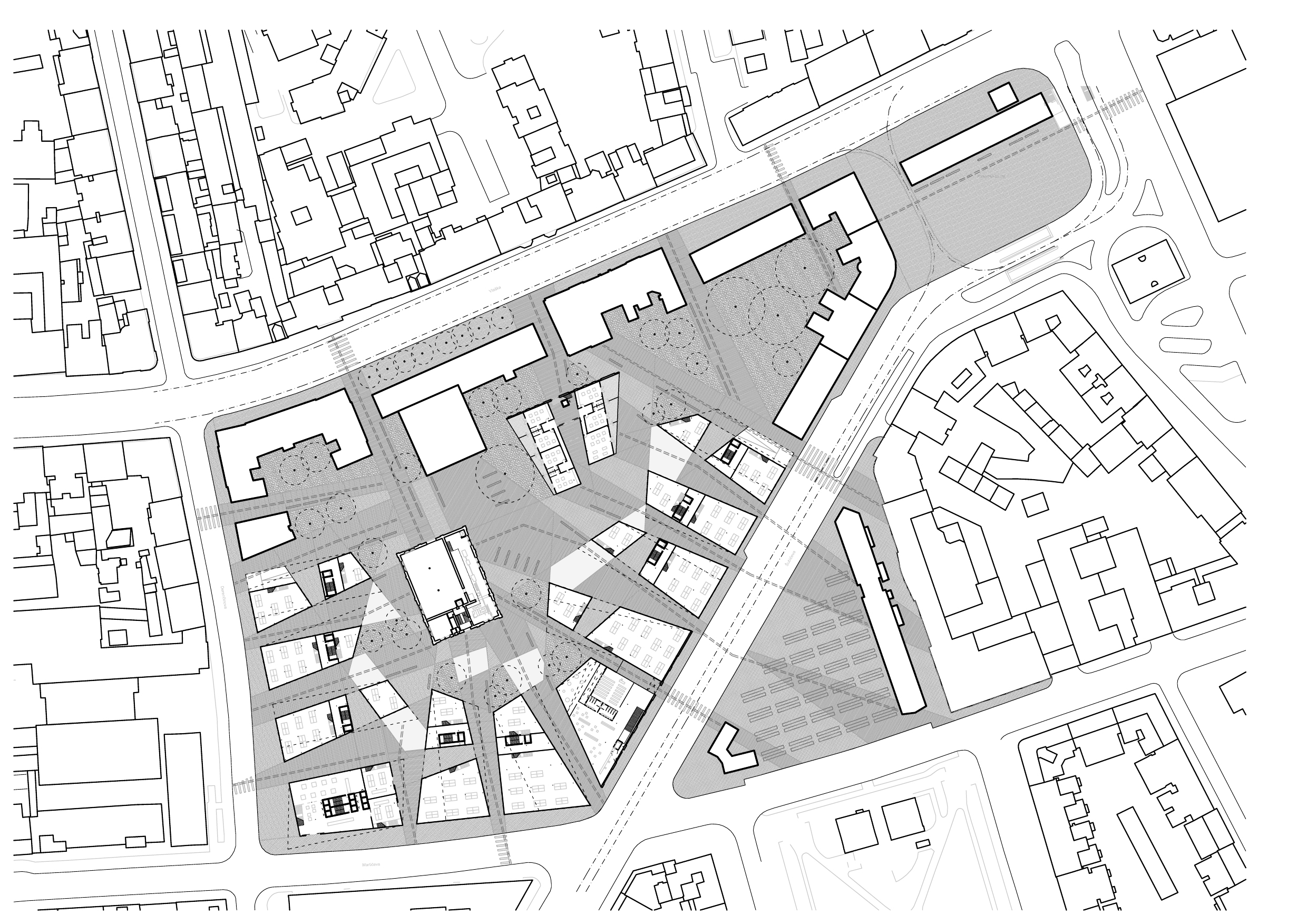
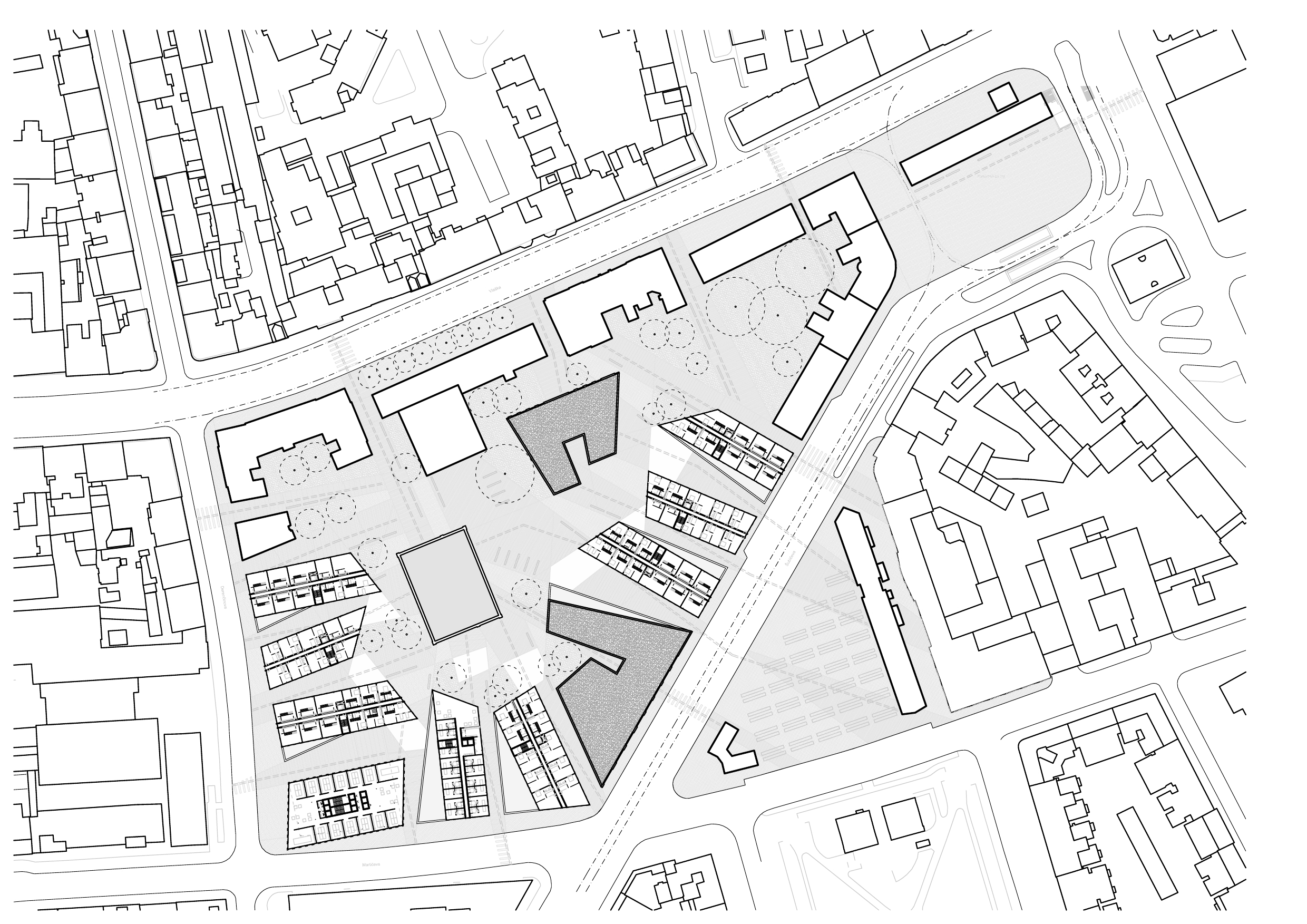

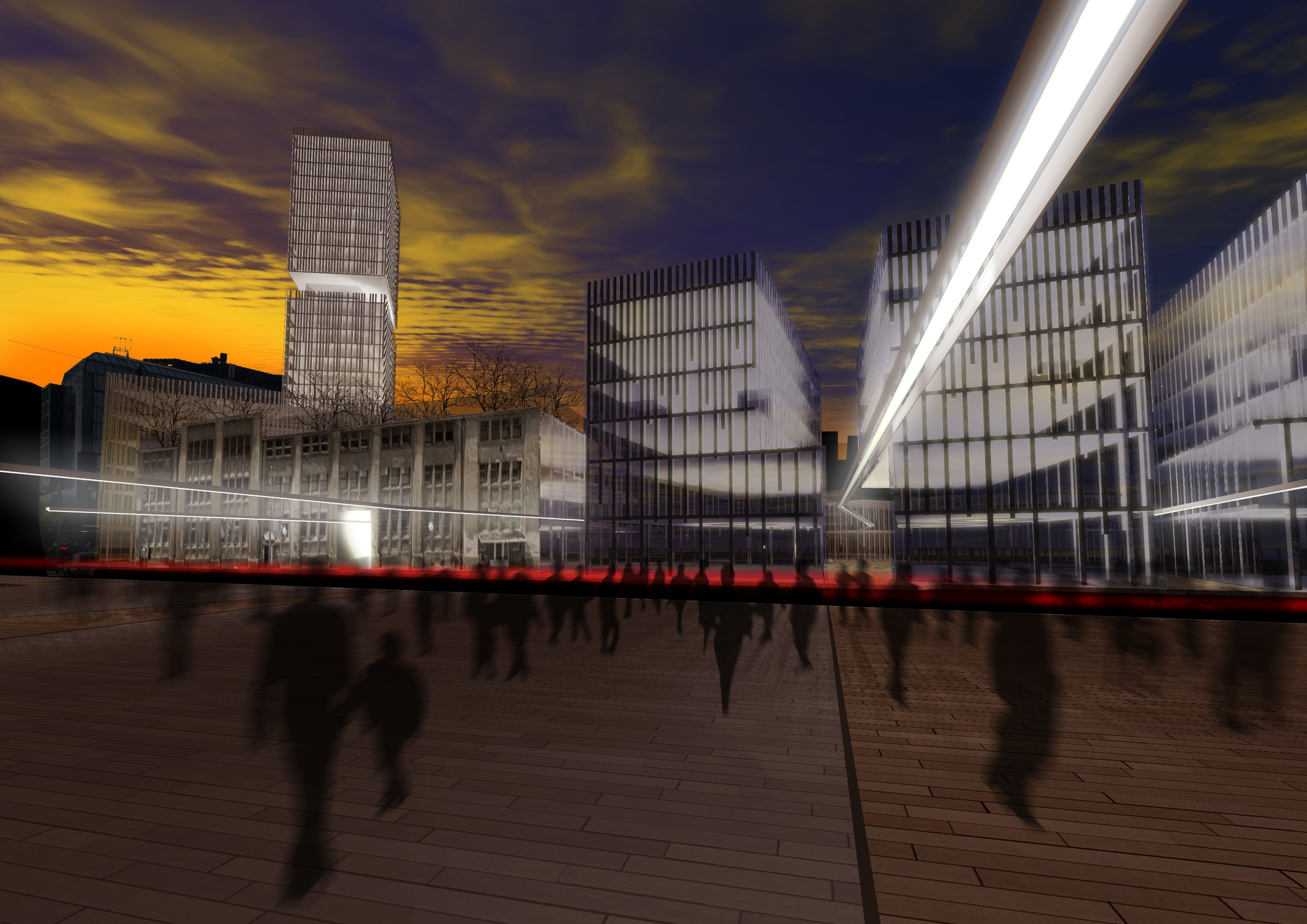
Porocity
ARCHITECTS
Carles Sala, Relja Ferusic, Nagore Linares, Mario Ferusic and Maria Cedó
ADMINISTRATION
Zagreb City Hall
LOCATION
Zagreb, Croatia
SURFACE AREA
101.824 m2
PROJECT DATE
April 2012
